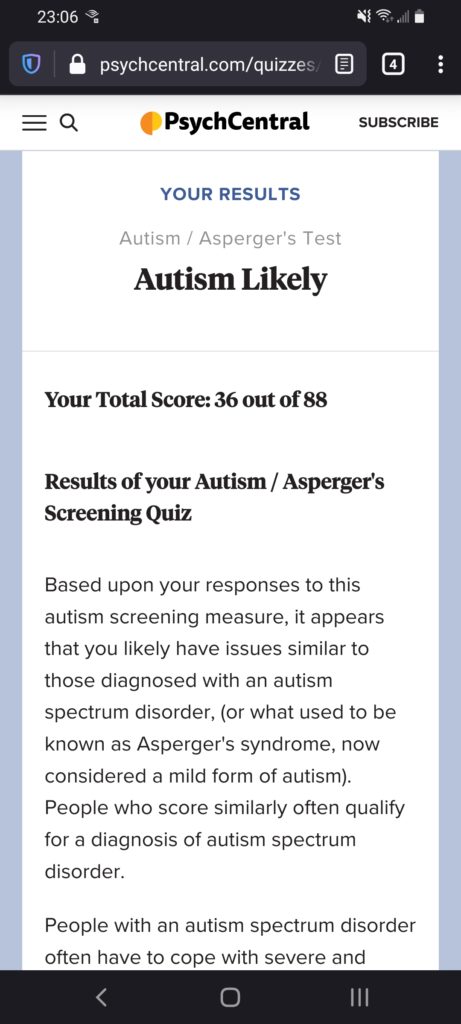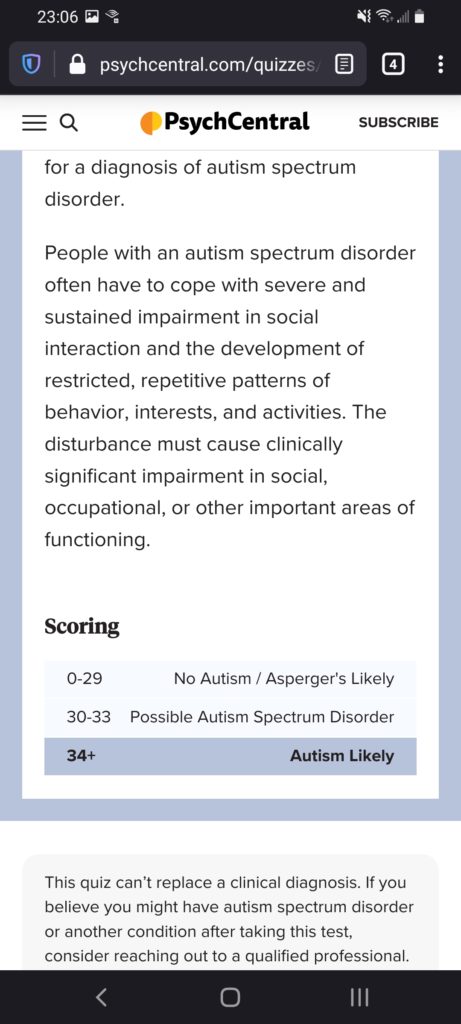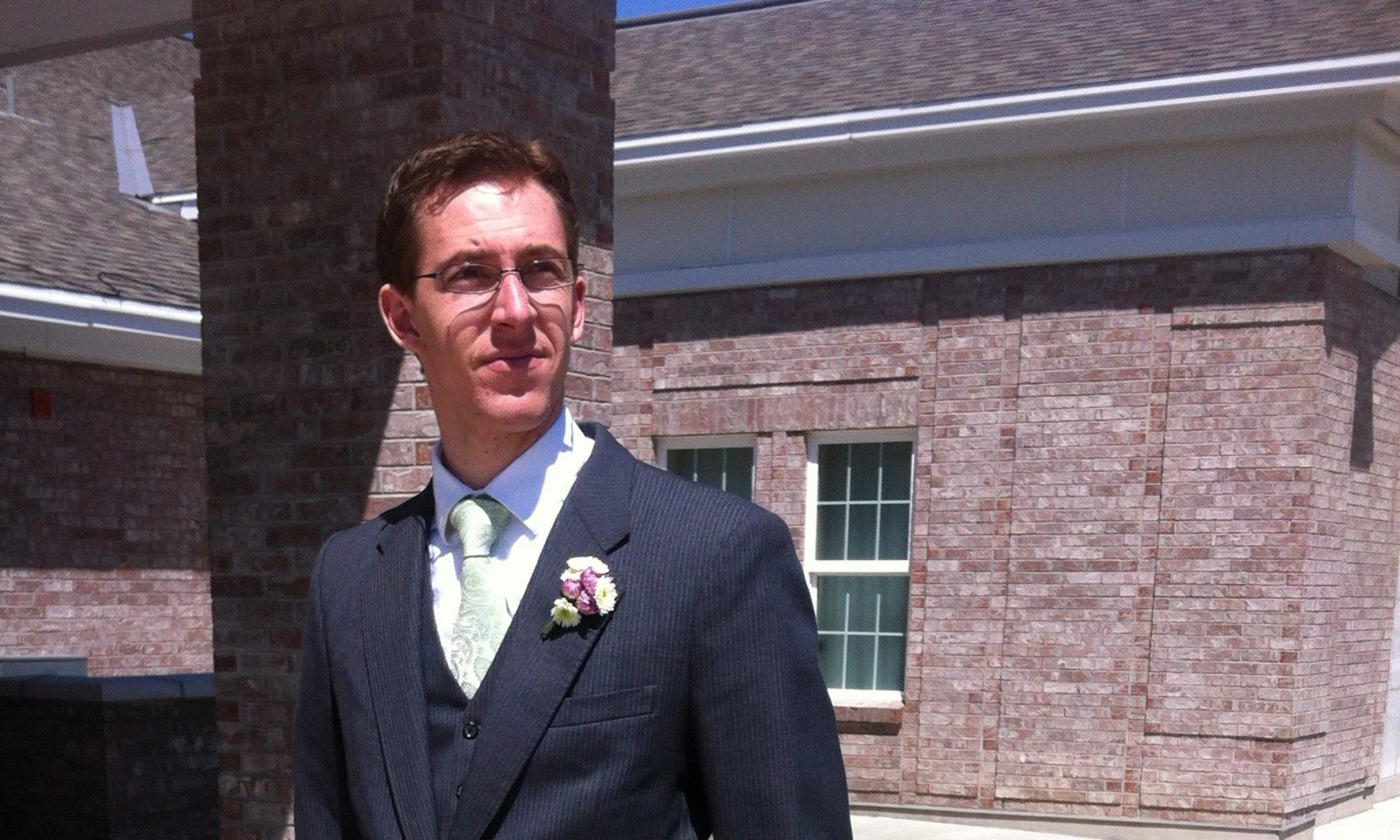An unplanned part 2, to be sure.
I’m not sure if it were weakness, curiosity, or just the mood I was in, but last night I answered some questions engineered to determine whether the respondent may have autism spectrum disorder.
Where most internet questionnaires tend to be the 10 question buzzfeed “What harry potter house are you?” type, this one seemed to be in line with the type of rigor that similar diagnostic questionnaires from university psychology classes have.
Based on my responses, the results indicated “Autism likely.”

1 
2
I’ve long thought, based on some personal quirks, that I am probably somewhere on “the spectrum.” I don’t naturally understand social interaction, I jump at sudden loud noises, I find certain things extremely easy (and apparently others do not), and I’m hyper-analytical about my own actions.
So conclusively, am I on the autism spectrum? No. “This quiz can’t replace a clinical diagnosis.” (For a number of reasons.) But if it were actually reliable, I did give a best-faith effort to the process, and I answered honestly, without trying to influence the outcome one way or another.
If I understand the results right, any score over 30 indicates potential autism spectrum disorder, and a score above 34 improves likelihood of that diagnosis. With a 36, there is probably a bit of room for error (especially if 88 is the highest likelihood), but it seems pretty safe to be within 15-16% margin of error.
So what does it mean?
It means my self-evaluation, reached years ago is right. Way to go me. Round of applause.
What does it change?
Functionally, it should change nothing. I’m still me. This is something I’ve always had as a part of my personality, and I can still live my life.
Does it give me certain strengths I can leverage to be better at certain things? Yes. Does it mean I’m predisposed to struggle at certain things? Yes.
Should it become an excuse? Absolutely not. The things I’m not good at, or the things that are hard still need to be worked at. They are skills in the end, not set in stone.
Leveling up certain skills may cost more than others, but in the end pretty much everything in life is a skill.
So functionally, nothing changes in my life.
I don’t think there’s any reason to introduce myself as autistic. I don’t know that there is any reason to say I’m on the spectrum more than I did (extremely rarely, and only when I was super frustrated with people). I think this is a way to say “I might be predisposed to bebetter at certain things than others and this may explain why.”
But there is probably no reason to pigeonhole myself any more than that.
I found this recent video from a youtube guy interesting. He comes across as outgoing, smart, and well-spoken (all things that are skills and can be trained over years of practice). It’s worth a watch.
